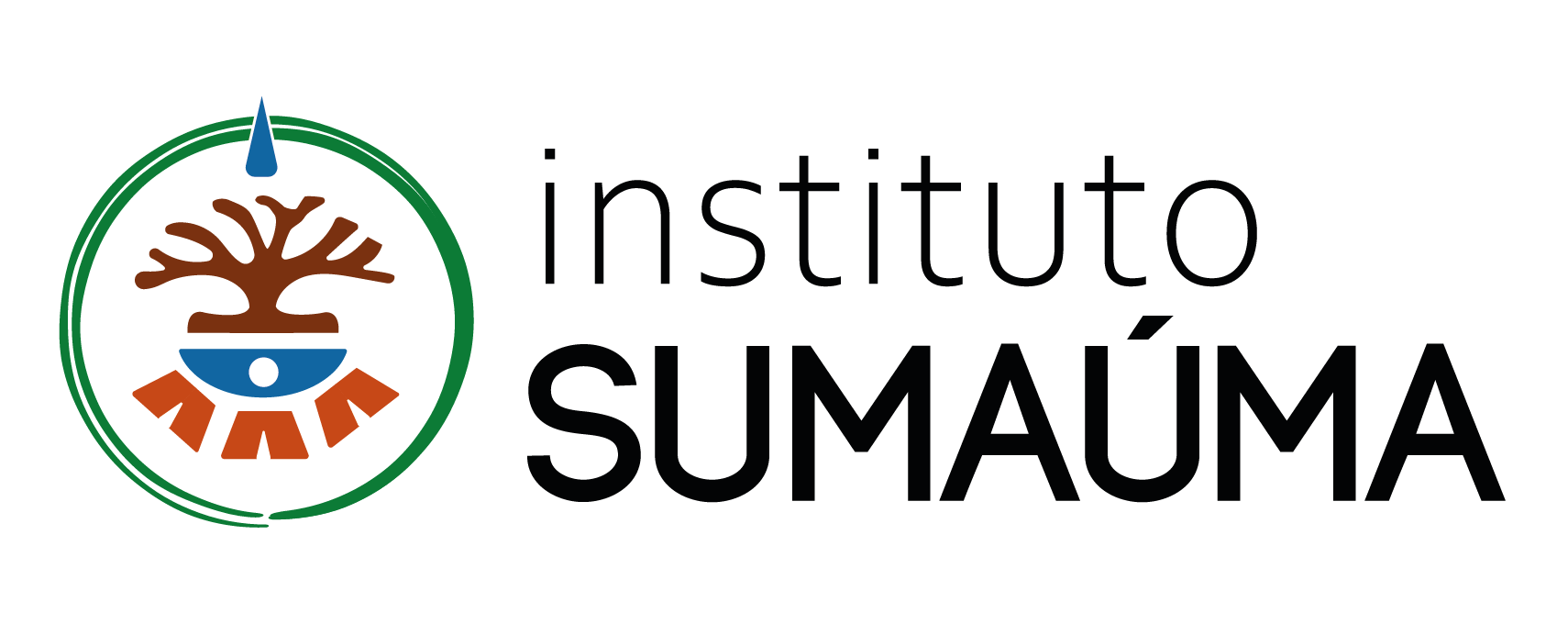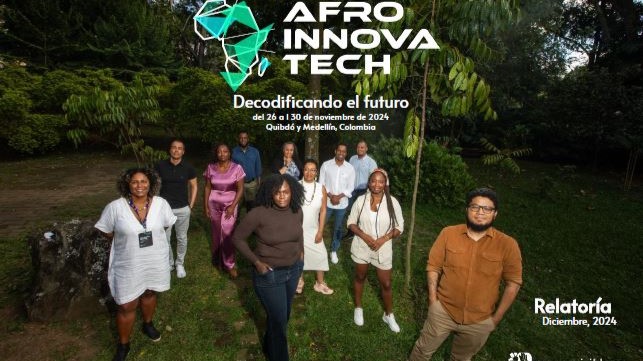Por Taís Oliveira
The Portuguese version is available here!
We have reached the third and final part of the 2024 Retrospective of the Sumaúma Institute. Previously, I spoke about our services, projects, and political advocacy activities. I want to discuss Events, Scientific Dissemination, and Collaborations in this post.
2024 was full of meetings, conversations, and sharing, mainly on technology, academia, and communication.
At events related to the academic field, we participated in conversations about affirmative action, academic careers, and scientific dissemination.
In the dialogues about technology, we had a talk at a company and a talk about a project to include black women in the technology field.
And in communication, I had the great honor of being a mentor in a project aimed at media outlets and journalism. Below, I provide more details on each activity.
AfroInnova Tech
In 2023, we were in Costa Rica for RightsCon, and in 2024, our work took us to another creative and community powerhouse in Latin America, Colombia. Once again, for an agenda focused on technology, we were among the experts invited to AfroInnova Tech, which was organized by Manos Visibles. Together with researchers, entrepreneurs, and activists from the African diaspora, we visited Quibdó and Medellín, intending to create a regional agenda on technology and racial equity.
The event’s program included the AfroInnova Tech Forum – Decoding the Future with several panels. Below, you can watch the panel that was triggered by the question, “What is the agenda we should promote to find the necessary codes that generate better futures?”, in which I presented a perspective inspired by the intellectuality of Abdias Nascimento to promote networks, connections, strategies, rights, dignity, and ethno-cultural integrity in the markets of the future of the diaspora.
The AfroInnova Future Labs activity divided workgroups into Data, Technology, Advocacy, Technological Ventures and Investments, Algorithms, Energy, and Sustainability. During the week, we also visited innovative places and social and cultural collectives in both cities, such as the Chocó Robotics School, Código Comuna 13, Valle del Naidí, Flor Purpura, and a special dinner with black Colombian women who are changing structures with their work.

Acadêmico
In the areas related to the academic environment and scientific research, I had the honor of mediating the panel ‘The political significance of affirmative action in contemporary Brazil,’ which featured professors Valter Silvério (UFSCAR), Antônio Sérgio Guimarães (USP), Matilde Ribeiro (UNILAB) and Paulo Neves (UFABC).
The Journey Debate on the Future of Affirmative Action in Brazil and Africa took place at the Research and Training Center at Sesc, in São Paulo. It was an initiative of the Kaleidoscope Project, which brings together researchers from different disciplines in the human sciences to discuss different theories and methodologies surrounding affirmative action.
Speaking of possibilities, we also attended the Seminar on Scientific Education and Dissemination: Paths to Inclusion and Racial and Gender Equity, organized by the Oswaldo Cruz Foundation (Fiocruz) Bahia and held at the Anísio Teixeira Institute in Salvador. At the event, I lectured on ‘Independent scientific dissemination initiatives: the case of the #CiteMulheresNegras Movement.’
Technology
Among the discussions on the topic of technology, I was at Hora C: Racism in Technology at Cognizant with the talk “Contemporary Issues in Communication and Digital Technologies,” an occasion where employees were able to listen and share about internet access, data exploration, machine learning, the relationship between capitalism and racism in contemporary times, surveillance, and internet governance in Brazil.
I also spoke at the training program for young black women: technology, social justice, and digital rights from an anti-racist and feminist perspective, from minas programam. At the event, I spoke about “Intellectuality and Incidence of Black Women in the Field of Digital Technologies,” based on the book Griots and Digital Technologies, which brings together unpublished works that seek to promote dialogue between the production of Afro-Brazilian intellectual ancestors and contemporary technologies, whether digital, social, educational or otherwise.
Communication
Finally, I had the honor of being a mentor for the distribution of the agenda for the call for proposals “Reporting grant, mentoring and solutions journalism: early childhood as a priority agenda,” a partnership between the Digital Journalism Association – Ajor and the Maria Cecilia Souto Vidigal Foundation.
I followed the proposals of Desenrola e Não Me Enrola, Rede Cajueira, and Gênero e Número, three significant media outlets in their activities.
My task was to guide the development of strategies to promote the agendas developed, especially online strategies. I provided fundamental premises and tools for efficient communication, such as the planning template that aims to think about and establish the objectives, audiences, content, and work structure available, as well as the publication schedule for organizing the teams’ day-to-day activities.
We ended with a collective chat with the three initiatives so that each could share the challenges, lessons learned, results, and ideas for the future based on the agendas.

We would like to thank all those who collaborated, supported, and shared in the services, projects, and activities of political advocacy, as well as in the events, scientific dissemination, and collaborations.
We are looking forward and excited for the 2025 activities! Our agenda is open for coffee, conversations, and partnerships. 😉


